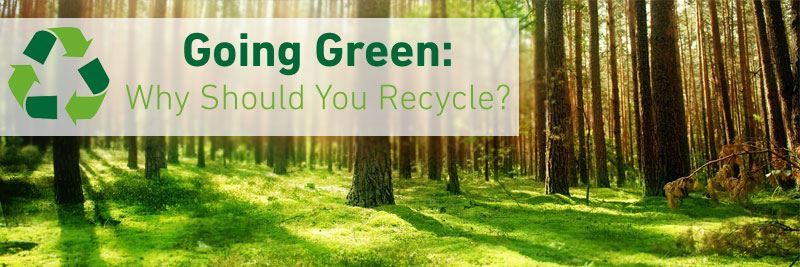Recycling is something that we cannot get away from – in our homes, businesses, out and about and even on holiday. The UK in particular has gone recycling mad. A multitude of bins to sort your waste into, with varying specifications for each one and different methods of disposal.
In light of this – is it all worth it, and what does it gain? The UK recycles roughly between 73% and 79% of its waste, split up between various differences in categories such as paper, glass, metal or plastic. Even with these numbers, our landfills are running out, quickly – but that’s not the only incentive to recycle.
Save energy. Renew energy
Recycling is not limited to cutting down the amount of raw material that goes into our landfills, it is also very efficient at saving our energy supplies, and offering new alternatives for generating energy from waste.
Part of the cost of creating items is the energy required in the production process. 70% less energy is required to recycle paper, compared to making paper from raw materials. By recycling, you are cutting down the amount of energy required to create an identical product. 1 recycled can would save enough energy to power your television for 3 hours, as oppose to making it from scratch.
Certain recycling methods, such as Anaerobic Digestion, used to recycle food waste, can turn everyday waste into biogas. This can then be used to power engines to produce electricity from power plants, and be fed directly into the National Grid.
Preserve resources and wildlife
Part of the drive towards recycling, green energy and waste reductions comes from our depleting natural resources of gas and oil. It is no surprise that our oil supply is running out, but did you know that recycling can greatly help to slow down it’s depletion?
Every year, around 275,000 tonnes of plastic are used in the UK, which, in relatable terms, is around 15 million bottles per day. Taking the water bottle as an example item for all plastic produced in the UK: It takes around 3.4 megajoules of energy to make a typical one litre plastic bottle, complete with cap and packaging. 1 barrel of oil contains around 6,000 megajoules, meaning it takes around 8,500 barrels of oil a day, or 3.1 million barrels per year, just to sustain the UK’s growing demand for plastic.
Recycling plastic would help to drastically cut down the amount of oil used for manufacturing and production processes. This video explains how our plastic is recycled:
Plastic Bottles – how they are recycled from RecycleNow on Vimeo.
Wildlife also benefits from you or your business recycling. Animal habitats and homes are destroyed every day to source our materials, at such a rate that either greater recycling measures, or more sustainable raw material collection is required to avoid eliminating certain habitats and landscapes.
According to the Global Forest Resources Assessment , 2005, between 3 and 6 billion trees are cut down each year. There are around 1 and a half acres of rainforest cut down every second. With roughly 59,698,189 acres in the UK, this means that a wooded area the size of the UK is destroyed around every 1.5 years.
Recycling can help to reduce the amount of woodland and habitats destroyed every year, all whilst saving energy in the destruction, transportation and production of certain recyclable products.
Recycling is good for the economy
An increase in recycled products produces a greater demand for jobs, both in the sorting and production of recycled materials and products.
Green Alliance head of resource stewardship Dustin Benton says:
“The UK is currently burying billions of pounds of value in landfill and losing out on thousands of skilled jobs. A change in policy would improve resource productivity and boost private sector jobs growth at a time when the economy really needs it. Landfill is also a major source of greenhouse gas emissions.”
It is estimated that banning certain items from going to landfill could create up to 47,000 UK jobs:
Wood: 3,200 jobs
Textiles: 6,600
Electronics: 9,500 jobs
Food: 12,100 jobs
Plastics: 16,100 jobs
As well as the increase in jobs, recycling also greatly helps towards using less water, creating a lot less pollution and consuming less energy and resources.
Most items can be recycled
A lot more can be recycled now than could a few decades ago – far more than the standard paper and plastic.
As a business, recycling can help you to cut down on hefty landfill tax charges, so consider recycling more than just your used printer paper:
Batteries
Building Materials
Computers and electronics
Furniture
Glass
Metal
Mobiles
Oil/Paint
Paper
Plastic
Printer Cartridges
Textiles
Vehicles
Wood
Food
and much more.
Recycling rates are growing across the UK, but more can always be done to cut down on our waste! Let us know what you’re doing in the comments!
Back
